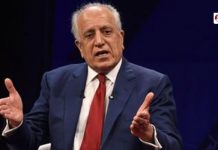Author: Zyan Baloch
“The courage of life is often less a dramatic spectacle than the courage of a final moment, but it is no less a magnificent mixture of triumph and tragedy. A man does what he must in spite of personal consequences, in spite of obstacles and dangers and pressures, and that is the basis of all human morality.” – John F. Kennedy
I begin with John F. Kennedy’s quote on courage, as it resonates with the inherent bravery displayed by intelligence personnel. These individuals willingly undertake seemingly impossible tasks, driven by the responsibility to accomplish their mission. The primary role of intelligence is to accurately anticipate the future, a realm beyond human and scientific comprehension. Intelligence professionals strive to gather as much information as possible about the people, organizations, or governments that constitute a specific environment or external arena before making predictions about potential events. Their core responsibility is to provide accurate information about potential threats, activities, and operations, interpreting complex problems, national security threats, opportunities, and risks.
Yitshak Ben Yisrael states, “Intelligence is an institution for clarifying reality beyond enemy lines, a reality that is difficult to reach and analyze.”
The Significance and Necessity of a Strong Intelligence Network in Guerrilla Warfare:
An intelligence network plays a vital role in identifying potential guerrilla attack sites, collecting data on enemy troop movements, and supply operations. This knowledge enables armed organizations to carry out successful strikes while evading detection by hostile forces. Additionally, an intelligence network facilitates the recruitment of local informants and allies who can provide valuable information about the enemy’s whereabouts and activities. This network of support helps guerrilla forces gain critical insights into their adversaries’ operations. A strong intelligence network is essential for the success of guerrilla warfare, as it provides vital information and support to achieve their goals. Without an efficient intelligence network, guerrilla forces may struggle to gather the necessary data to plan and execute operations effectively, making them more vulnerable to identification and reprisal by enemy forces.
Intelligence as an Ally in Military Operations:
One of intelligence’s traditional roles is to support military operations. This involves not only warning individuals of impending attacks but also providing the armed forces with the information necessary to plan and execute various military operations. This traditionally includes details about the nature, terrain, disposition, spirit, and capabilities of the enemy forces and conflicts. All military operations rely on intelligence, and the information obtained through the intelligence network largely determines the success or failure of an operation.
The Baloch Armed Conflict and the Intelligence Network:
In recent years, Baloch armed organizations have successfully carried out several attacks on the Pakistan armed forces, foreign exploitative projects, and other institutions, resulting in significant losses and casualties. These actions have garnered attention from foreign powers as well. Among these acts, the attacks by Majeed Brigade of the Baloch Liberation Army stand out as a notable example. As previously mentioned, the success or failure of each operation relies heavily on the intelligence network and the accurate information it collects and provides to decision-makers. Special operating teams are formed based on strategies and plans developed using this information, increasing understanding among decision-makers.
George Washington once said, “The necessity of providing good intelligence is apparent and need not be further urged. All that remains for me to add is that you keep the whole matter as secret as possible.” Therefore, it is not suitable to discuss or disclose specific information about intelligence organizations and networks, as they are highly classified and confidential.
Yehoshafat Harkabi aptly stated, “Anybody dealing with intelligence is walking through a minefield in which hitches can occur at every step of the way, from directions that cannot be foreseen.” This emphasizes the challenges faced by intelligence personnel, who work tirelessly and anonymously to deliver factual and accurate descriptions of our adversaries. Though their work often goes unnoticed due to its secrecy, it is their dedication and efforts that contribute to the success of missions.
In the book “Israel’s Secret Wars,” it is mentioned that “Israel sees its future as depending on a deep knowledge of its enemies and its capacity to destroy them. It’s almost certain that there’s no country on earth that, by area, by population, or by resources, produces, analyzes, and consumes as much intelligence as Israel.” This highlights the importance of intelligence in comprehending and countering threats. It is believed that having the best weapons and spies will lead to victory. These statements underscore the critical role intelligence plays in safeguarding national interests.
Human Intelligence (HUMINT) is widely recognized as the most effective source within the intelligence network. The Mossad, for instance, is rumored to rely heavily on human intelligence as its primary source of information. NATO defines HUMINT as “a category of intelligence obtained from information acquired and delivered by human sources.” HUMINT is typically gathered through undercover agents and spies, relying on human interaction rather than technical means. Historical examples, such as Oleg Penkovsky, the Cambridge Five, and agents of the Culper Ring, highlight the significance of HUMINT in providing essential information about the goals, potential, and actions of enemies, whether they are groups, organizations, or enemy forces. It is often considered one of the most valuable sources of intelligence due to its ability to provide specific and intricate information that is challenging to obtain through other means.
In conclusion, I urge the Baloch people to actively contribute to the intelligence network, strengthening it and enhancing its effectiveness against the enemies of the Baloch nation. By doing so, they will illuminate the path for our comrades in arms and safeguard our collective interests.
Disclaimer: The views and opinions expressed in this article are those of the author and do not necessarily reflect the official policy or position of The Balochistan Post or any of its editors.




























